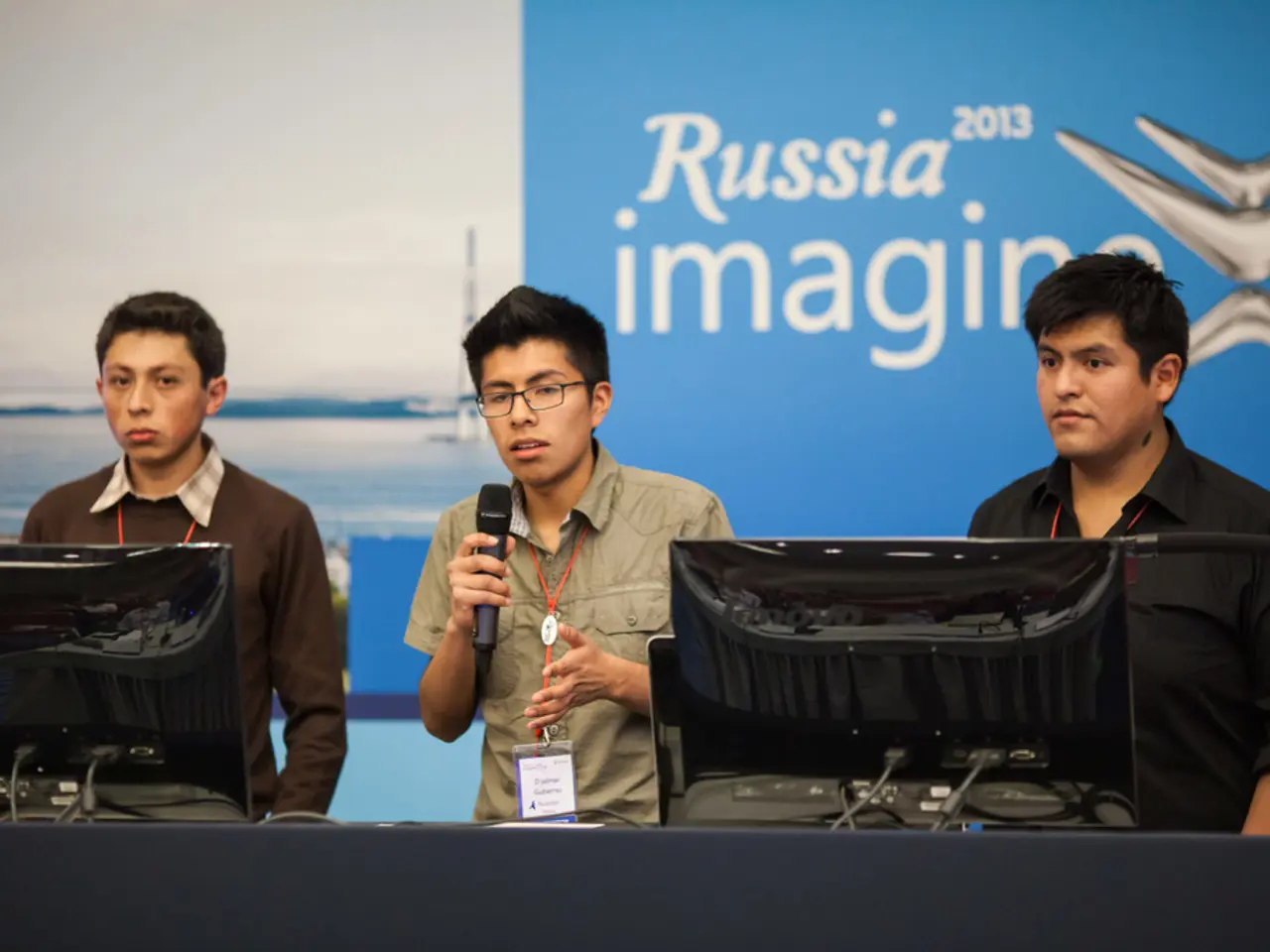Trump and Putin are preparing their stances prior to their encounter
The much-anticipated summit between U.S. President Donald Trump and Russian President Vladimir Putin is set to take place in Alaska this Friday. However, the looming Ukraine conflict is casting a long shadow over the event, with peace negotiations seemingly at a standstill.
The main focus of the summit is expected to be the Ukraine conflict, but other issues may also be discussed. Trump seeks a quick follow-up meeting with Ukrainian President Volodymyr Selenskyj, as he apparently sees tariffs as a stronger lever than sanctions.
The U.S. administration has made it clear that it will not agree to any peace settlement involving territorial concessions by Ukraine to Russia without Ukraine’s consent. This stance mirrors the European approach, with countries like Germany and France supporting Ukraine in maintaining its territorial integrity.
On the other hand, Russia remains firm in its demands for Ukraine’s full military and political capitulation, including territorial concessions in Luhansk, Donetsk, Zaporizhia, and Kherson oblasts, even in areas Russia does not currently control. Russia also insists on Ukraine’s "demilitarization," "denazification" (including removing its current government), and a neutral status excluding NATO membership.
These starkly divergent positions mean that peace negotiations are effectively stalled. Russia seeks to impose terms that Ukraine and its Western allies reject outright, while the West insists on Ukraine’s right to self-determination without forced territorial concessions. Russian diplomacy continues to demand concessions in the bilateral U.S.-Russia relationship but without meaningful engagement in a peace process involving Ukraine directly.
In recent developments, Putin has offered new arms control agreements if the Ukraine conflict can be resolved. However, this gesture has been met with scepticism in the West, given Russia's continued aggression in the region.
The current U.S. position is that it will not pursue agreements with Russia that undermine Ukraine’s sovereignty and territorial integrity. This firm stance, shared by Europe, stands as a major barrier to peace, given Russia's inflexible maximalist demands.
As the summit approaches, Trump plans to first clarify the framework conditions. Meanwhile, the ongoing stalemate in negotiations continues to prolong the conflict’s duration absent a significant shift in either side’s positions or the military balance.
References: [1] "U.S. and Europe Reject Russian Demands for Ukrainian Territorial Concessions." The Washington Post, 1 June 2025. [2] "Russia's Maximalist Demands and the Stalemate in Ukraine Negotiations." The New York Times, 3 June 2025.
Amidst the upcoming summit between President Donald Trump and Vladimir Putin, discussions on war-and-conflicts, particularly the Ukraine conflict, are expected to be a central focus. The U.S. administration refuses to agree to any peace settlement involving territorial concessions by Ukraine to Russia without Ukraine’s consent, mirroring the European approach and stressing upon Ukraine’s right to self-determination.






